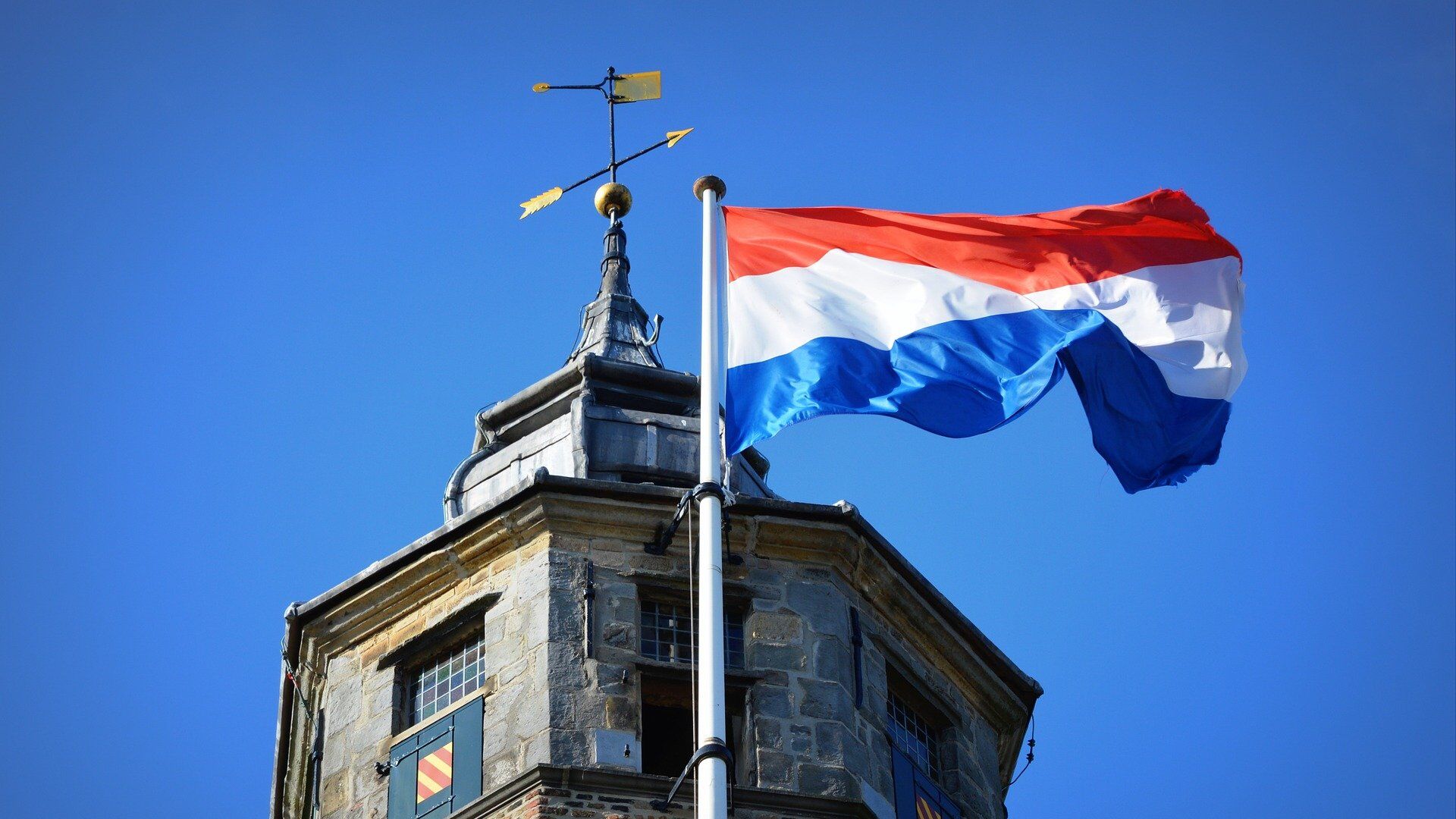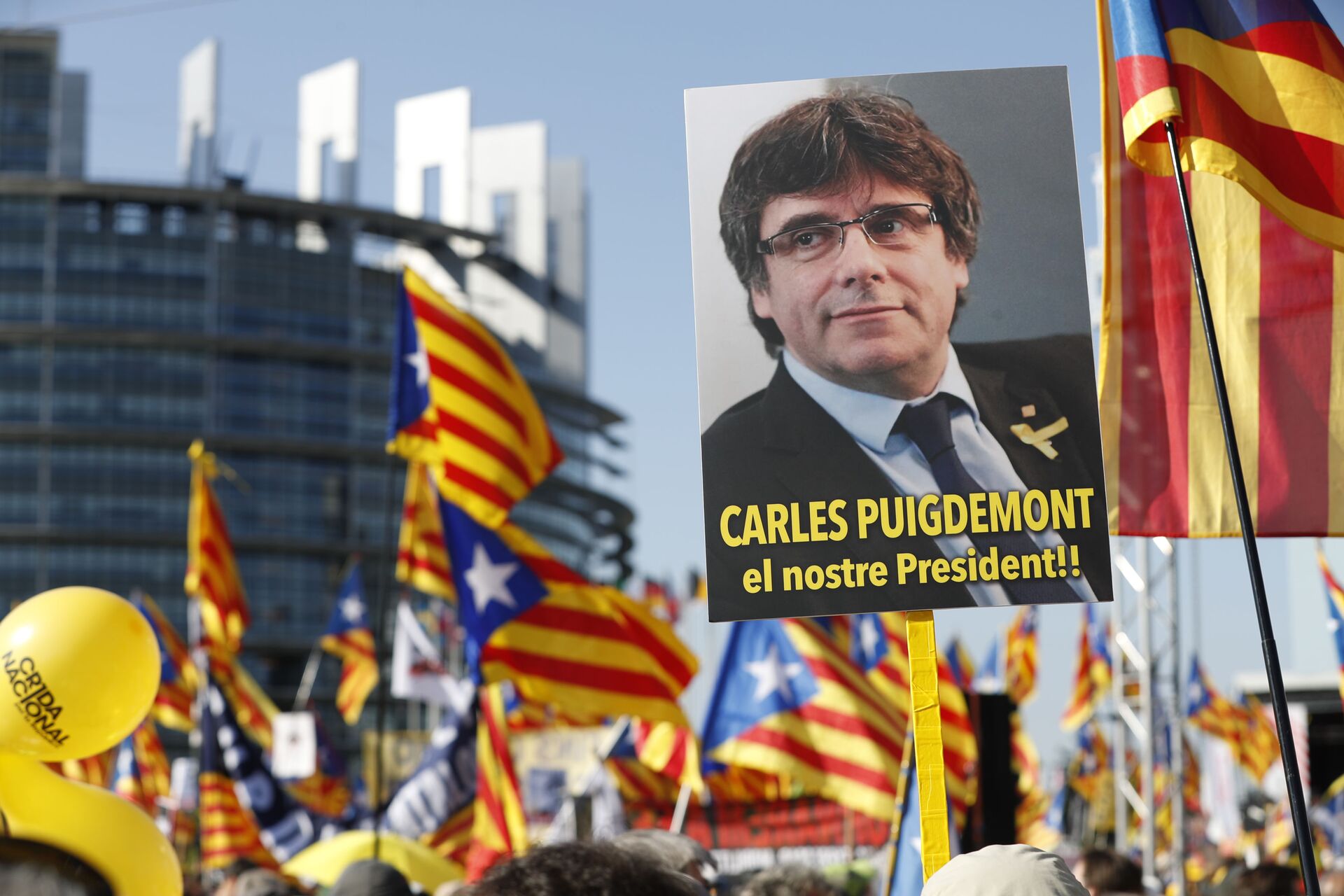https://sputnikglobe.com/20211018/dutch-frisian-national-party-boss-reflects-on-meeting-with-puigdemont-talks-eu-local-agenda-1090003275.html
Dutch Frisian National Party Boss Reflects on Meeting With Puigdemont, Talks EU, Local Agenda
Dutch Frisian National Party Boss Reflects on Meeting With Puigdemont, Talks EU, Local Agenda
Sputnik International
According to Sijbe Knol, his party aims for broader representation at home by addressing housing, energy, and language issues. 18.10.2021, Sputnik International
2021-10-18T11:18+0000
2021-10-18T11:18+0000
2021-10-18T11:18+0000
netherlands
europe
carles puigdemont
https://cdn1.img.sputnikglobe.com/img/105714/50/1057145055_0:0:1920:1080_1920x0_80_0_0_5a01c2934fa97ea3031f0e57f8cf9d76.jpg
The political leader of the Frisian National Party (FNP) has shared his views on current EU policies, the Catalan independence movement, and the differences in politics between his region and Spain's Catalonia.Sputnik: The province of Friesland in the Netherlands, where the FNP is based, is known for its own language and traditions, which are being preserved carefully by locals. Your party focuses on a regional agenda and on federalism within the Netherlands. What are your key goals at home?Sijbe Knol: I think we can take that apart in three programmes. Housing: it has become increasingly difficult for young people to find a home. The prices have gone up tremendously. If you compare it to 2015, the prices are more than 30% higher in our region. The youngsters can't find homes anymore.They start with their lives later on, and it has a big effect. So, that's the first thing, and the second thing - and it will always be on our agenda, I think, it's the language and culture. We want to be able to live our lives in a Frisian language environment, so we need teachers and good education right now. Right now, at the moment, it's very relevant. We have an issue with the use of Frisian in court. We have a lack of interpreters at this moment. People who might speak Frisian in court - they can't do so at this moment because no one is able to translate it for the judge, who most of the time is a Dutch speaker.And the last thing is the protection of our landscape. We want to be in charge of our own energy production – renewable, wind farms, we want to be able to decide about the gas extraction below our feet, and we see that mainly the government in the Netherlands is looking at our landscape to produce that energy, and we say that we want to be in charge of our own energy production, so we can do whatever we want to do in our own way.Sputnik: Earlier this week, you met with the 130th President of Catalonia Carles Puigdemont, who thanked the people of Friesland for supporting the right of Catalonia to self-determination. What do the two regions have in common in terms of the drive for independence, and what are the differences?Sijbe Knol: I think we share a strong feeling of regional identity and want to maintain that, we want to decide democratically on the future of our own population, within the framework of the Netherlands, of course, and we want to have a say in many things and more respect for diversity within the Netherlands. In contrast to the Catalans in Spain, we do not have the ambition to split apart. I think that's important. We're also glad that we have freedom of speech and freedom of assembly. It is much stronger in our country than it is in Spain.But of course, we feel a strong bond with the Catalan people, who have been denied the many rights of self-determination that they obtained after the democratic transition of Spain following the Franco regime. So, we have a big bond with them also in the European context. I think the people of the regions of Europe want a better and more democratic Europe, and I think that's a good thing.Sputnik: While in Brussels, you took part in the gathering of the European Free Alliance (EFA). What kind of message are you trying to convey on the European level, and what are your views on the future of the EU?Sijbe Knol: It's important that we are one of the founding members of the EFA. We believe that the Frisian Party and Frisians, in general, need to be represented at all levels and also need to speak on all levels. EFA is also a place where we find partners who recognise the situation which we're in as a region.The European Union, we think, is a great idea, and cooperation in Europe is a must. Unfortunately, we see that member states dominate the debate and are frustrating progress in the EU because they disagree or because they are afraid of peer pressure. For example, we saw this with the Minority SafePack Initiative, the European Citizens' Initiative, supported by over 1.2 million people, which also had the support of many regional and national parliaments.The European Parliament supported it with a huge majority, but the European Commission decided to shelve it - probably afraid of the few or some state governments that are hostile to minorities, minority language, or cultural diversity in general, for example, Greece, France, and Romania. So, I think we can do better on that. But the European Union is important for us.
netherlands
Sputnik International
feedback@sputniknews.com
+74956456601
MIA „Rosiya Segodnya“
2021
Denis Bolotsky
https://cdn1.img.sputnikglobe.com/img/07e5/06/0b/1083128270_0:0:961:960_100x100_80_0_0_8cd81dafcbaac1c176c25141f8af1d2a.jpg
Denis Bolotsky
https://cdn1.img.sputnikglobe.com/img/07e5/06/0b/1083128270_0:0:961:960_100x100_80_0_0_8cd81dafcbaac1c176c25141f8af1d2a.jpg
News
en_EN
Sputnik International
feedback@sputniknews.com
+74956456601
MIA „Rosiya Segodnya“
Sputnik International
feedback@sputniknews.com
+74956456601
MIA „Rosiya Segodnya“
Denis Bolotsky
https://cdn1.img.sputnikglobe.com/img/07e5/06/0b/1083128270_0:0:961:960_100x100_80_0_0_8cd81dafcbaac1c176c25141f8af1d2a.jpg
netherlands, europe, carles puigdemont
netherlands, europe, carles puigdemont
Dutch Frisian National Party Boss Reflects on Meeting With Puigdemont, Talks EU, Local Agenda
According to Sijbe Knol, his party aims for broader representation at home by addressing housing, energy, and language issues.
The political leader of the Frisian National Party (FNP) has shared his views on current EU policies, the Catalan independence movement, and the differences in politics between his region and Spain's Catalonia.
Sputnik: The province of Friesland in the Netherlands, where the FNP is based, is known for its own language and traditions, which are being preserved carefully by locals. Your party focuses on a regional agenda and on federalism within the Netherlands. What are your key goals at home?
Sijbe Knol: I think we can take that apart in three programmes. Housing: it has become increasingly difficult for young people to find a home. The prices have gone up tremendously. If you compare it to 2015, the prices are more than 30% higher in our region. The youngsters can't find homes anymore.
They start with their lives later on, and it has a big effect. So, that's the first thing, and the second thing - and it will always be on our agenda, I think, it's the language and culture. We want to be able to live our lives in a Frisian language environment, so we need teachers and good education right now. Right now, at the moment, it's very relevant.
We have an issue with the use of Frisian in court. We have a lack of interpreters at this moment. People who might speak Frisian in court - they can't do so at this moment because no one is able to translate it for the judge, who most of the time is a Dutch speaker.
And the last thing is the protection of our landscape. We want to be in charge of our own energy production – renewable, wind farms, we want to be able to decide about the gas extraction below our feet, and we see that mainly the government in the Netherlands is looking at our landscape to produce that energy, and we say that we want to be in charge of our own energy production, so we can do whatever we want to do in our own way.
Sputnik: Earlier this week, you met with the 130th President of Catalonia Carles Puigdemont, who thanked the people of Friesland for supporting the right of Catalonia to self-determination. What do the two regions have in common in terms of the drive for independence, and what are the differences?
Sijbe Knol: I think we share a strong feeling of regional identity and want to maintain that, we want to decide democratically on the future of our own population, within the framework of the Netherlands, of course, and we want to have a say in many things and more respect for diversity within the Netherlands.
In contrast to the Catalans in Spain, we do not have the ambition to split apart. I think that's important. We're also glad that we have freedom of speech and freedom of assembly. It is much stronger in our country than it is in Spain.
But of course, we feel a strong bond with the Catalan people, who have been denied the many rights of self-determination that they obtained after the democratic transition of Spain following the Franco regime. So, we have a big bond with them also in the European context. I think the people of the regions of Europe want a better and more democratic Europe, and I think that's a good thing.
Sputnik: While in Brussels, you took part in the gathering of the European Free Alliance (EFA). What kind of message are you trying to convey on the European level, and what are your views on the future of the EU?
Sijbe Knol: It's important that we are one of the founding members of the EFA. We believe that the Frisian Party and Frisians, in general, need to be represented at all levels and also need to speak on all levels. EFA is also a place where we find partners who recognise the situation which we're in as a region.
The European Union, we think, is a great idea, and cooperation in Europe is a must. Unfortunately, we see that member states dominate the debate and are frustrating progress in the EU because they disagree or because they are afraid of peer pressure. For example, we saw this with the Minority SafePack Initiative, the European Citizens' Initiative, supported by over 1.2 million people, which also had the
support of many regional and national parliaments.The European Parliament supported it with a huge majority, but the European Commission decided to shelve it - probably afraid of the few or some state governments that are hostile to minorities, minority language, or cultural diversity in general, for example, Greece, France, and Romania. So, I think we can do better on that. But the European Union is important for us.





